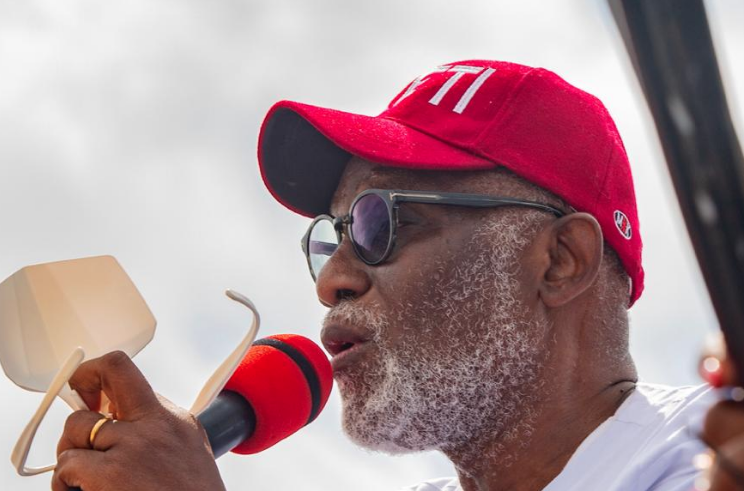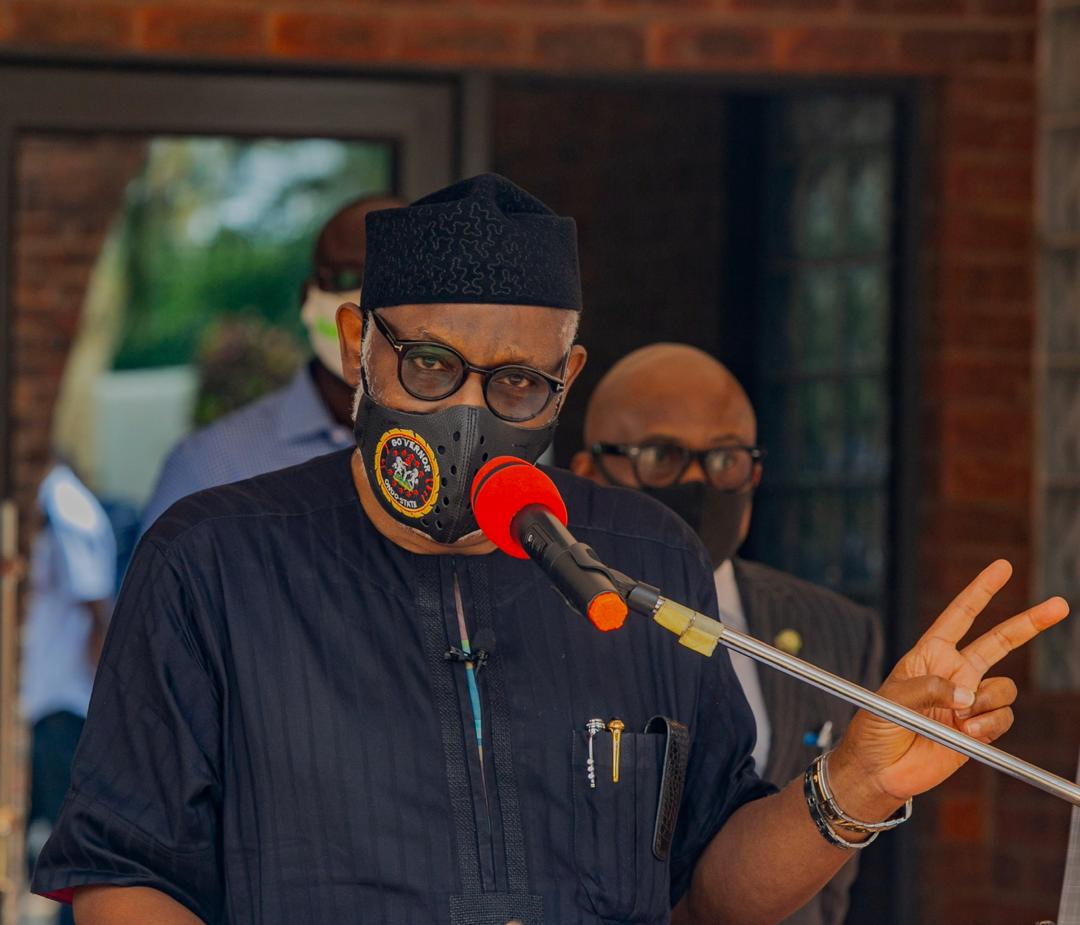BY FOLORUNSHO COKER
Certainly, the severe acute respiratory syndrome coronavirus 2 (SARS-CoV-2) or simply the coronavirus, which causes the coronavirus disease referred to as COVID-19, has occasioned one of the greatest disruptions to human existence since its break out in November 2019.
Its grisly impacts have not only shown up in the spiral of mortalities across the world – from the Western to Northern Hemispheres, but it has more so led to the unravelling of huge dimensions of the global economy, prompting the major losses of jobs and livelihoods, putting healthcare systems under tremendous pressures, while equally deepening the burden of countries, which have to create newer forms of safety nets for their people.
In many African states, the tally from lockdowns attendant upon the spread of the virus has seen to the growing incidence of poverty, resurgent immiseration, and worsening fiscal outlooks, which have added to the general fragility of the states. With over four million recorded cases of coronavirus infection in the continent and more than 100,000 deaths, the disaggregated data for Nigeria reveals over 162,000 confirmed cases of coronavirus, and 2,049 mortalities at the March-ending 2021 count.
Advertisement
The disruption wrought by coronavirus to the tourism and hospitality sector globally deflected its upward thrust as a dependable form of economic activity, source of jobs and also the wealth of nations. It was a sector that had accounted for as much as $9 trillion of the world’s GPD, over 7 per cent of global trade and about one in every 10 jobs – totalling up as some 330 million positions, worldwide, as recently as 2018.
On the continental level, tourism and its associated sectors have been noted as adding $166 billion to the GDP of Africa in 2019 by the World Travel and Tourism Council (WTTC), constituting 7.1 per cent of the entire GDP of Africa, at a growth rate of 2.2 per cent over the previous year.
In Nigeria, tourism and a number of its allied industries, from travel to hospitality, had generated revenues in excess of N1.2 trillion, about 4 million direct jobs, coupled with many more along its expanding value chain, which all kept over 10,000 SMEs preoccupied. As a web of interconnected livelihoods, the tourism and hospitality sector made a significant contribution to the national gross domestic product.
Advertisement
Yet, the rupture from progression induced by the coronavirus has seen to the major contraction of the global GDP by between 3 and 5 percent since early 2020, an erosion of about 80 per cent of the value of tourism worldwide, which is heeled to the loss of almost $2 trillion in international visitors’ spending and the whittling away of tens of millions of jobs.
By the close of 2020, there had been a global loss of over 1.2 billion international tourist arrivals – an attrition of more than 74 per cent of the 2019 traffic, with the African figure being about just 18 million arrivals, making for a 75 per cent loss.
The Weakening of Demand
The adverse impact of the coronavirus on economies across the world led to a huge reduction in demand in the tourism, travel, hospitality and cognate industries, which are traditionally hinged on human contact. As the pall of fear became entrenched and coupled with the lockdowns imposed by governments, these impelled a vast human recoil that greatly eroded economic activities across countries.
Advertisement
In the mono-product economy that Nigeria is, the petering out of commodity demand consequently motivated a crash in the price of oil in the international markets, signaling the bottoming out of government revenue, and prompting a huge ripple effect on incomes and jobs. This culminated in the abrasion of purchasing power, severely weakening consumer demand across a range of sectors, including tourism and hospitality.
Weakened demand cut through the entire gamut of tourism and hospitality, alongside its wide value chain, and deeply affected subsectors such as transportation – from the airlines to waterway conveyance and railways; food and beverages – including catering operators, cafes, and restaurants; accommodation – involving hotels, and other forms of lodging; and the entertainment sector – with its film houses, concert venues and events centres, etc.
As demand tanked, this not only impacted the economy but also education, political and cultural institutions, with the latter witnessing many of its locations closed, including World Heritage Sites, and deferments to communal cultural practices.
Besides over 80 per cent of hotels and other hospitality concerns undergoing major downturns and similar levels of impact as a result of the coronavirus offensive, one metaphor that is illustrative of the unfortunate condition of the sector is the airline industry. This is an industry reputed to have earned global revenues in the region of $600 billion prior to the advent of the virus, but which sadly incurred a loss of some $314 billion in 2020, resulting from an unprecedented -80 per cent decline in international passenger traffic.
Advertisement
In Nigeria, the assault of the virus has only compounded the situation of the airline industry, which is now cumulatively tottering on the verge of collapse, and in need of another round of government financial intervention.
The Dawning of Recovery
Advertisement
The trajectory of recovery from the deleterious impacts of the coronavirus on the tourism and hospitality sector is anchored as much on the effective adoption of the safety protocols designed by international and local health regulators and officials, as in the administration of the COVID-19 vaccines that are being rapidly gained access to by many across great swathes of the world.
With both the non-pharmaceutical and pharmaceutical forms of prophylaxis and intervention, the climate of fear that had enclosed peoples and communities through the globe is lifting. Also, recovery is hitched to the reinvention and transformation of economies, drawing deeply from the lessons offered by the disruption of COVID-19, which bodes well for the tourism and hospitality industry, in terms of the healing for people, for prosperity and destinations.
Advertisement
While the nature of the post-COVID-19 recovery is not fully clear at this point, what can be conjectured is the likelihood of its unevenness across spaces and differences in location, with some likely to be faster than others. Yet, in contemplation of the bounce back after a raft of disasters, misfortunes and pandemics, such as the Middle East Respiratory Syndrome (MERS), Ebola and Severe Acute Respiratory Syndrome (SARS), history shows us that the recoveries are never prolonged. The pattern is not likely to be fundamentally different this time either, even when people would definitely entertain a lot more caution in resuming erstwhile levels of activity.
Still, indications and evidence point out that the notion of recovery in the tourism and hospitality sector is going to be initially linked to the spike in the fortunes of domestic tourism, which is closer home than international experience-seeking. Fortunately, this aligns firmly with the policy focus of the Nigerian Tourism Development Corporation (NTDC) that I lead, as it evolved in our strategy outlay described as the CHIEF plan, from which was spawned our flagship programme, “Tour Nigeria.” This is the flank from which we are driving recovery in Nigeria.
Advertisement
As many countries are developing measures towards the building of a more resilient tourism and hospitality industry in the post COVID-19 era, these would have to include efforts within the frame of sustainable recovery, as signaled by the digital transition that we are all enmeshed in and which served the basis for adaptation during the heights of the coronavirus affliction. This is tourism and hospitality that equally needs to be greener and more future-ready.
Harnessing the Digital Transition
We now live in a world of adjusted living and the series of global lockdowns earlier gone through in most places as part of the strategy of containment of the coronavirus, speeded up our adoption of a contactless world, and primed our reliance on digital technologies for activities extending from payments to e-commerce, education, and the general marketing of most things. The lessons from this show that technology has come to play a more salient role in our reality than was the case before the start of the coronavirus pandemic, and going forward the Nigerian tourism and hospitality industry would need to find new ways of engaging with technology in growing the sector to the extent of its potentials.
Even with the gradual healing coming with recovery, as vaccines are being administered as pushback to the virus, the full resumption of contact-based activities will not likely happen as quickly as many would have wanted, hence the need to reinvent ourselves and professions in line with the newer reality. New digital compliant products would need to be developed, while the marketing of tourism will have to take advantage of the huge convergences on the information superhighways.
Our experience at the NTDC saw us leveraging technology for the promotion of tourism, as in our engagement with the tech giant, Google and Wikipedia to create a bouquet of tourist experiences, particularly through our leading offering of Tour Nigeria. The tourism and hospitality industry must be positioned, not only to benefit from the reach of technology but also to take on the efficiency it offers in delivering services to people.
Tourism and hospitality, all over the world, and in Nigeria is big business, which is why the Nigerian government recognised it for its potentials and drew these into plans for economic diversification and a post-COVID era. Big businesses are aligning with the new economic direction opened up by digital technology, and tourism and hospitality cannot afford to be left behind.
Even then, there is the new notion of “promoting attractions in your destination more than the destination itself”, which can be a veritable source of merchandising.
Towards More Efficient Service Delivery
In consolidating on recovery towards greater service delivery in the post-COVID-19 tourism and hospitality industry, the foremost measure that needs to be considered is the rebuilding of the confidence of tourists and stakeholders in the sector. A concert of targeted rebranding and publicity campaigns are important in creating the reassurance needed to re-inspire demand for the products of the industry. Equally, staff and other operatives in the sector need the assurance of security around their livelihoods for them to be able to offer their motivated and unrestrained services.
Closely related to this is the necessity of paying attention to sanitary protocols and hygiene in the industry, through the regular disinfection of facilities to reduce the risks of contagion, etc., while communication strategies and campaigns have to be created around this as a way of shoring up the confidence of tourists about their safety. Henceforth, it would be important for infection prevention programmes to become a strong aspect of the marketing of tourism and hospitality, into the future.
Moreover, general safety policies and programmes have to be put in place to secure the operations of the industry and guarantee the protection of tourists and its patrons.
On a very important level, there is the need for government to help save the sector’s businesses and livelihoods, which have been under serious threat in the wake of the ravages of COVID-19, through economic support and national stimulus packages for the industry. This should be in the form of low interest loans and other fiscal buffers to help in recapitalising tourism and hospitality enterprises, the payment of staff, settling of outstanding payments, updating of equipment and skills in the industry, etc. This could also help the operator in creating competitive products that help in stimulating demand.
Another emerging issue is the necessity of developing frameworks for industry collaborations that assist in the sharing of information, ideas and experiences across stakeholders. This will help in creating partnerships for mutual support and cooperation, which are needed to better withstand circumstances that could be harmful to the industry and its actors.
As alluded to earlier in the instance of NTDC’s collaboration with the tech giants, Google and Wikipedia, the challenges of COVID-19 has enabled a more digital reality, which the industry has to be a part of to survive in this new day, as demanded by the great shift in consumer behaviour. Hence, the tourism and hospitality sector needs to accelerate its digital transition and transformation, taking advantage of information and communications technologies to enhance work and industry operations. Cloud-based computing systems now offer a slew of tools for remote working, the cultivation of clientele, and creation of innovative products.
This leads to the need for digital trainings pertaining to technology adoption and online activities, to retool workers on skills needed to function effectively in the brave new world of artificial intelligence, comprising machine learning, that shape new tourism and hospitality experiences. These comprise skills such as big data analysis, digital marketing and market intelligence, in order to understand novel consumer behaviour, and therefore satisfy demands in this regard.
In addition to the foregoing, there has to be improvements in the offerings of the tourism and hospitality industry, as in services for the yet wary consumers, like non-contact orders and delivery, through which they can, for instance, order meals and entertainment through apps, other forms of e-payment systems and innovative platforms, amongst similar possibilities.
I am of the firm believe that while the impact of coronavirus on the tourism and hospitality industry has caused us much to think about and great concern in recent times, yet the opportunities it opens up lay ahead as a grand feast for the brave.
Coker is the director-general of the Nigerian Tourism Development Corporation (NTDC).






